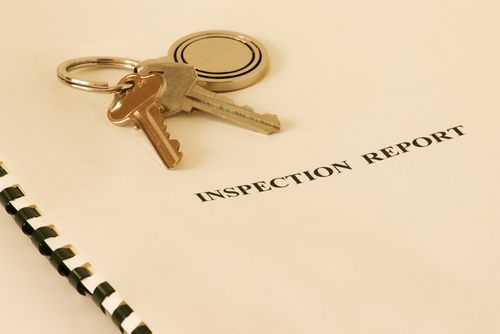Here's What a Home Inspector Can't Tell You
 Many buyers head into the home inspection with the idea that afterward they will know everything about the home, but this is not a realistic expectation. Instead, you should keep in mind that home inspectors are professionals that look for specific indicators and are bound by a set rules regarding their findings. Although every buyer is understandably focused on what's in the report, in some ways it is just as important to understand what isn't covered as what is. Keep reading to learn about a few of the items that you shouldn't expect to be covered in the home inspection.
Many buyers head into the home inspection with the idea that afterward they will know everything about the home, but this is not a realistic expectation. Instead, you should keep in mind that home inspectors are professionals that look for specific indicators and are bound by a set rules regarding their findings. Although every buyer is understandably focused on what's in the report, in some ways it is just as important to understand what isn't covered as what is. Keep reading to learn about a few of the items that you shouldn't expect to be covered in the home inspection.
A Detailed Roof Inspection
Although home inspectors will often climb up onto the roof to examine shingles, gutters, and other features more closely, they are not required to do so. Many inspectors will simply perform a visual inspection from the ground, particularly if the weather is bad or the roof is steep. Often this isn't an issue, as serious problems with the roof will be obvious, but make note of how the roof was inspected when reading the report.
Hidden Flaws
Home inspectors aren't allowed to move things that might be hiding flaws, such as cosmetic paneling over a cracked basement wall or even a sofa sitting in front of a broken outlet. However, they should make note of any major items or areas that were inaccessible during their inspection. In order to get the best possible examination of the house, you should work with the seller to move items that might impede the inspection.
Mold, Mice, Rats, Termites, Etc.
Yes, the inspector will probably mention if they see evidence of pests such as these in the home. However, it's important to remember that they are not licensed to definitively say whether something is, for example, mold or just odd discoloration on a wall. If you or the inspector have concerns about a possible infestation, you should bring in a professional to assess the extent of the problem.
Lead Paint, Asbestos, Etc.
In the same way that they can't make definitive statements about pests, home inspectors also can't determine whether a house has environmental problems such as lead paint. As a general rule, if it is an older home built pre-1980, you should have a specialist come in to test for these issues.
These are a few of the most important and surprising items that might not be covered by your home inspection. You can learn more about this topic by reading this article from HouseLogic.com.
- Cheryl Bourland's blog
- Login or register to post comments
 Google+
Google+


 Information Deemed Reliable but Not Guaranteed. CENTURY 21 H.S.V. Realty is licensed in the state of Arkansas. CENTURY 21 and the CENTURY 21 Logo are registered service marks owned by Century 21 Real Estate LLC. H.S.V. Realty, Inc. fully supports the principles of the Fair Housing Act and the Equal Opportunity Act. Each franchise is independently owned and operated. Any services or products provided by independently owned and operated franchisees are not provided by, affiliated with or related to Century 21 Real Estate LLC nor any of its affiliated companies.
Information Deemed Reliable but Not Guaranteed. CENTURY 21 H.S.V. Realty is licensed in the state of Arkansas. CENTURY 21 and the CENTURY 21 Logo are registered service marks owned by Century 21 Real Estate LLC. H.S.V. Realty, Inc. fully supports the principles of the Fair Housing Act and the Equal Opportunity Act. Each franchise is independently owned and operated. Any services or products provided by independently owned and operated franchisees are not provided by, affiliated with or related to Century 21 Real Estate LLC nor any of its affiliated companies.